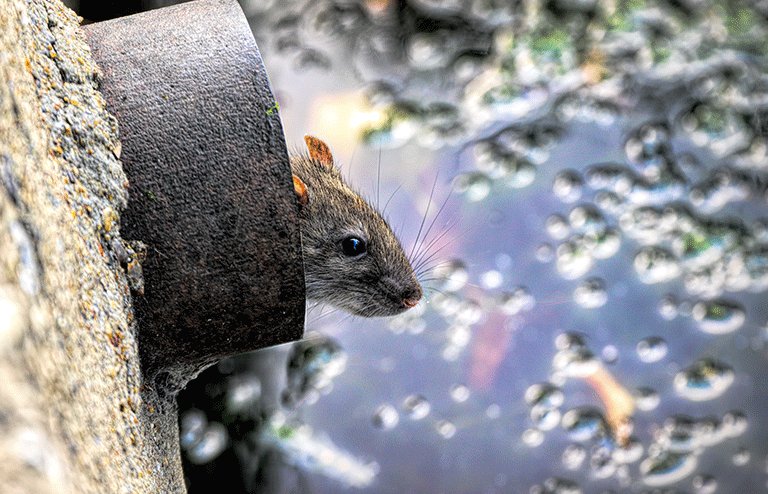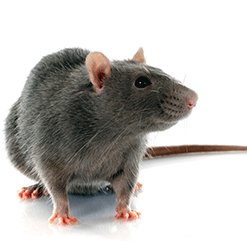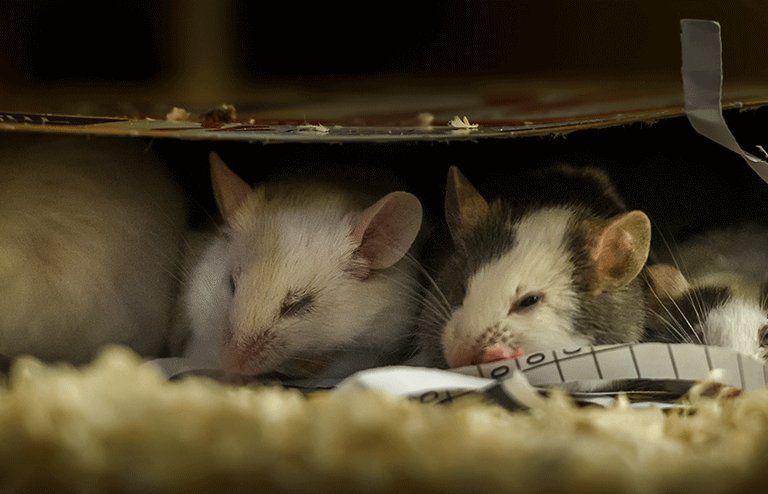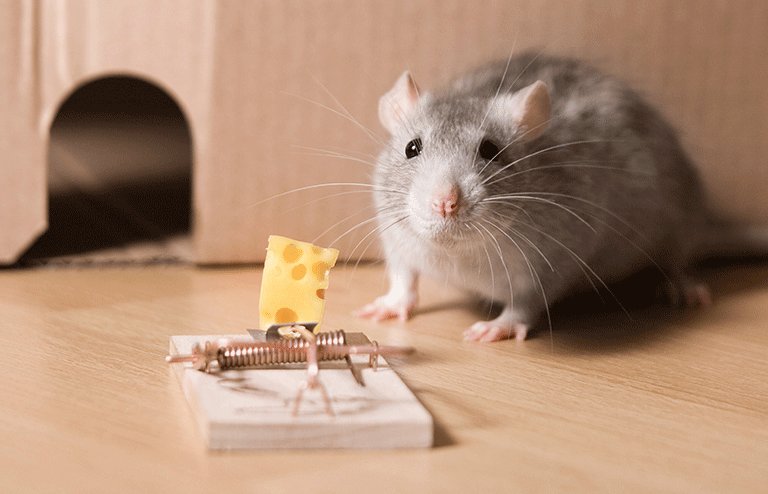Rodent Control: 10 Most Effective Yet Simple Methods That Work

Trying to get rid of rodents for good?
Get a FREE Quote & BEST PRICE from a local exterminator
(866) 470-1609Available Next Day
No Obligation Assessment
Guarantee Results
How Do Mice and Rats Damage Homes?
Without a pest control service, both rats and mice cause structural damage to homes and buildings. They do so by gnawing, nest-building, and defecation.
Mice build nests and they will gnaw and chew on anything that they can use to do so. That could be paper, wood, plastic or just about anything. They will burrow into upholstery to create a nest and burrow into insulation. They will either make nests inside insulation cavities or use the materials to build a nest elsewhere.
Mice can chew through wires in your electrical system which can lead to house fires.
If you have stored valuable paintings or priceless photograph albums in an attic which has become infested with mice, you could find that these are eaten and chewed through too. In fact, the more hidden away and undisturbed an item is the more appealing it is as a potential home for a rat or mouse. As rats and mice go about their business destroying your home and belongings, they leave a trail of urine and feces that spreads disease.
Diseases Spread by Mice and Rats
One of the main reasons for quality pest control services is disease. If the damage to your property were not bad enough, mice and rats carry various diseases that pose significant health risks to you and your family. They include the following:
Hantavirus Pulmonary Syndrome
Certain types of rodents carry Hantavirus Pulmonary Syndrome (HPS). They include the deer mouse (Peromyscus maniculatus), cotton rat (Sigmodon Hispidus), rice rat (Oryzomys palustris), and white-footed mouse (Peromyscus leucopus). All these rodents are common throughout North and South America. You can contract HPS by touching infected rodents or feces, being bitten or simply breathing in dust from urine and droppings.
Leptospirosis
Leptospirosis is a bacteria carried by many rodents. Infection can occur by eating or drinking contaminated food and water.
Lymphocytic Chorio-meningitis (LCM)
Lymphocytic Chorio-meningitis (LCM) is carried by the common house mouse and is a worldwide problem. Transmission of the virus can occur by touching contaminated rodents or waste or just breathing in the dust from urine and feces.
Plague
While thought to be a thing of the past, the plague can still be contracted. In the US, wild rodents such as rock squirrels, prairie dogs, wood rats, fox squirrels and other species of ground squirrels and chipmunks carry the disease. The disease can be contracted by touching the animal or a flea bite from an infected rodent.
Rat-Bite Fever
Despite the name, both rats and mice carry the bacteria. Transmission can occur from a bite or scratch or touching a dead rodent as well as food and drink contaminated by feces.
Salmonellosis
Eating food or drink that has been contaminated by rodents carrying the bacteria can result in salmonellosis food poisoning.

Trying to get rid of rodents for good?
Get a FREE Quote & BEST PRICE from a local exterminator
(866) 470-1609Available Next Day
No Obligation Assessment
Guarantee Results
How Do I Know I Have Rats or Mice in My Home?
So, how do you know you have a rodent infestation? Look out for these telltale signs.
Rodent Droppings
Fresh droppings are dark and moist and you may find them near food packages and in drawers and cupboards where rodents have been. You may find droppings under the sink and in hidden away places. Where there are more droppings is where rodents have been nesting and feeding.
Animal Gnawing
You may notice gnawing on items in your home as well as food packaging. Larger bite marks indicate rats rather than mice.
Foul Odor
Pets will likely detect an unwelcome visitor before you do by the odor they produce. If your pet becomes excited in a particular area then check it out. You may notice a stale and unpleasant odor if the infestation is significant.
Mouse Tracks and Runways
You might see smudges, footprints, urine stains, and droppings. If you suspect an infestation by putting down flour or talcum powder you will see trails in the powder.
Rat (or Mouse) Nests
You may find nests that have been made near infested areas.
Signs of Rodents in your Yard
Check out the areas around your trash as this is where an infestation is more likely to occur. Check for gnawing and droppings.
Rodent Population Size
If you see rodents during the day, it is likely that the infestation is large and you may consider calling a professional to deal with the problem.
Controlling a Rat or Mice Infestation
Snap traps are small wooden or plastic boxes that are a cheap and effective way of capturing and killing rats and mice. The traps often come in sets so that you can lay several traps at a time Once the trap has captured a rodent the trap can be reused. If you don’t want to deal with a dead rodent then simply discard the trap with the rodent inside and purchase another for a few dollars.
Live Traps
Live traps, as the name suggest, will trap a live rodent. The rat or mouse is attracted to investigate the hole but once they are in the trap they find they cannot get out. Because these traps will capture a live animal for humane reasons, it is essential to inspect the traps daily. The problem with live traps is you will then have to deal with a living animal.
You have two choices: you can kill the animal humanely or you can release it in an area where it is not going to re-enter your home or harm others.
You have two choices: you can kill the animal humanely or you can release it in an area where it is not going to re-enter your home or harm others. Note that in some U.S. states, the Centre for Disease Control prevents the release of animals as they pose a health risk. Another issue with live traps is that coming in to contact with rodents can cause a health risk.
If you are dealing with live or dead rodents, make sure you take preventative measures. You should not touch the animals so make sure you have protective gloves. A mask will prevent you breathing in any dust from feces that could lead to a disease being spread to a human.
Electronic Traps
This is a newer kind of device and considered to be more humane. They are battery-powered and when a rodent enters the trap it will be killed instantly by an electric shock.
Glue Boards
Glue boards are a trap which has a base with glue. Once the rodent has been lured into the trap it becomes stuck on the glue and dies. They are not as effective for rats as the rats can free themselves sometimes or simply drag the trap around attached to its body.
This is considered inhumane choice as the animal can experience a slow and painful death causing extensive injuries as it attempts to free itself. Dealing with the dead animal can be particularly unpleasant because of this.
Multiple-Catch Live Mouse Trap
This kind of trap is useful for a larger infestation but as it is a live trap once again you will need to deal with the rodents with caution.
Rodenticides
Rodenticides are poisons that are used for the eradication of rats and mice. It is recommended in larger infestation cases only with traps being advised for most cases. If you call in a professional, they will likely use this method.
The poison is placed in a bait station and the rodent will be killed by consuming the poisoned bait. It is essential that instructions are followed very carefully. A downside to this method is that the poison is not specific to rodents and could kill any animal that eats the bait. Never use this method when there is any possibility that the trap could come in to contact with small children or pets.
We hope you found the guide helpful and you and your home stay safe and free from rats and mice.

Trying to get rid of rodents for good?
Get a FREE Quote & BEST PRICE from a local exterminator
(866) 470-1609Available Next Day
No Obligation Assessment
Guarantee Results





